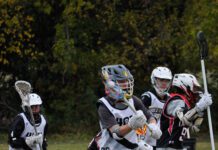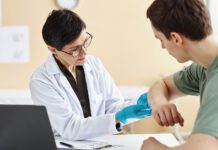Life has its ups and downs – and when the downs get a little too low, reaching out for help via one of Oklahoma’s many support groups is an excellent, sometimes life-saving, choice to make.
Whether you are seeking information and guidance regarding a chronic medical condition such as cancer, grief support after the loss of a loved one, assistance with addiction, or just a place to talk with others about life’s struggles, there are likely to be other people in your area who have walked the same path you are navigating. But how can Oklahomans find relevant and legitimate support groups for the issues they face?
“There are many ways to find support groups, but I would suggest one starts by asking their primary care physician, a licensed therapist or simply [doing] an online search,” says Artisha Woody, founder and executive director of Locs of Strength, a group whose primary commitment is to African-American women diagnosed with breast cancer – many of whom may otherwise be at a loss for finding help. “Recent studies have shown that there’s a direct link to survivorship, improved health and increased moods by participating in support groups,” she says.
Support groups provide a safe space where individuals can be vulnerable about the challenges they face – while also allowing them to receive a break from everyday life and acknowledge viable solutions, all within a supportive group of peers.
Any breast cancer survivor, active patient and/or caregiver may reach the organization via email at [email protected], social media (Facebook and Instagram: Locs of Strength) or via telephone at 405-834-7980.
Josh Turzanski, director of Peer and Wellness Services at the Depression and Bipolar Support Alliance of Oklahoma, Inc. (DBSA), agrees that support groups can play a vital role in recovery.
“There are many issues people face nowadays,” Turzanski says. “Though I can’t relate to issues outside of the mental health arena, I can say that there are support groups out there for just about anything. You can always utilize the 988 and 211 resources.”
988, or the Mental Health Lifeline, is a direct line that connects callers with trained behavioral health professionals in Oklahoma. Additionally, 211 Oklahoma is a free, 24/7 statewide program that connects Oklahomans with information and referrals to health and human services.
Turzanski says support groups are a great way to share your story with others who have been dealing with the same situation, as well as to receive and give advice on coping. To contact DBSA, call 405-254-3994.
According to the Mayo Clinic, some of the benefits of joining a support group include the opportunity to reduce anxiety, depression and the general sense of fatigue that comes with an onslaught of distress.
The National Alliance on Mental Health (NAMI) has an Oklahoma chapter that can be reached at 1-800-850-6264 or by email at [email protected]. According to their website, NAMI Connection is a resource for those seeking advice and understanding of mental health conditions. Such conditions can disrupt the ability to feel emotions, express thoughts and connect with others. Successes, as well as challenges, are explored to help afflicted individuals and their families find potential solutions to their everyday problems.
The bottom line: searching for supportive communities and asking for help are never bad decisions – and they can even save a life.






















